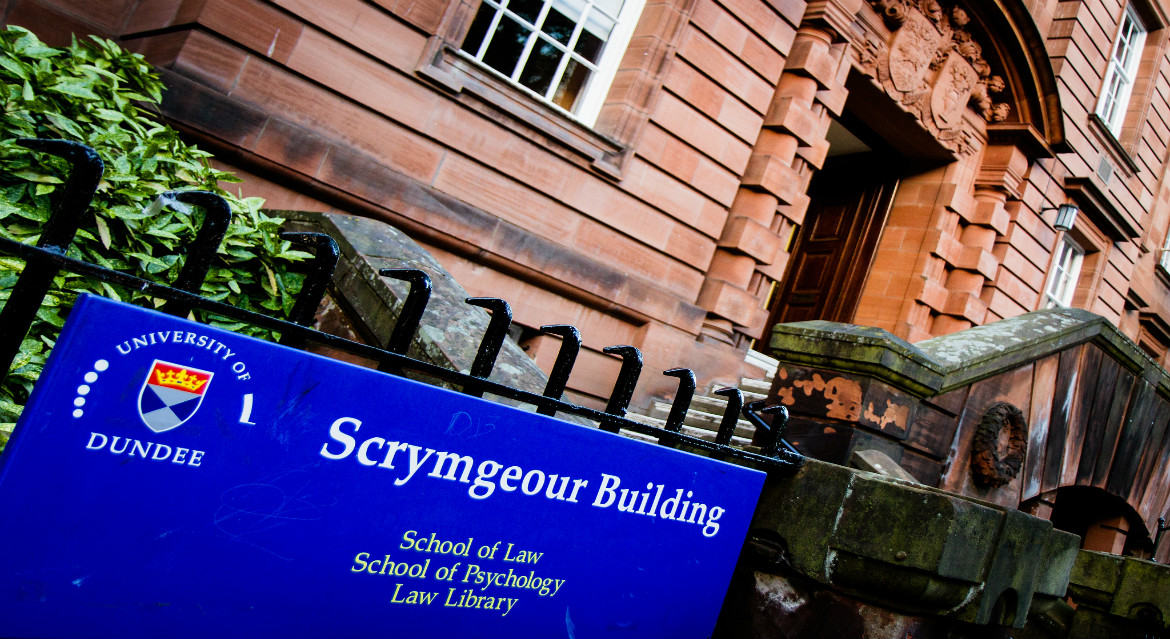Suicide battle requires older role models
Published On Tue 29 May 2018 by Jonathan Watson

Famous faces like Prince Harry and Ryan Reynolds can play a key role in reducing suicide rates among men, a researcher into the subject has said.
Charlotte Starkey, a postgraduate Psychology student at the University of Dundee, says that famous faces of yesteryear could also contribute towards curbing the number of males taking their own lives.
With suicide the largest killer of UK men under the age of 45, she says that while younger males living in the public eye are more inclined to open up about their difficulties, those outwith the so-called ‘Instagram generation’ are still looking for relatable role models to assist them through their own difficulties.
Charlotte will be discussing her research on how male gender influences suicidal ideation at the University’s Scrymgeour Building on Thursday 31 May.
Stating her belief that men in their thirties and forties can feel constrained by a perceived need to fulfil the traditional ‘alpha male’ stereotype, she says that similarly-aged personalities from the world of music, sport and screen could help to transform attitudes towards mental health.
“I’ve got a lot of respect for celebrities that admit to having mental health difficulties, but I would say that we’re not getting enough of them or the right demographic of men,” said Charlotte.
“The vast majority of those that do speak out tend to be from reality shows, young adult shows, and these people don’t connect with people of my father or grandfather’s generation.
“They’re not on Instagram and Snapchat, so we need more people in their thirties and forties speaking out. People that these men can relate to.”
Very few prominent men talk publically about mental health problems, though Hollywood superstar Ryan Reynolds, 41, recently revealed his long-term battle with anxiety, while Prince Harry, 33, has also confirmed that he sought counselling as he attempted to come to terms with the death of his mother, Diana, Princess of Wales.
Charlotte’s seminar is hosted by the Tayside Suicide Research Network, led by the University of Dundee’s Dr Fhionna Moore, and will focus on her studies into male suicide.
As part of her research Charlotte has spoken with patients at Dundee’s Ninewells Hospital, learning about their personalities and the events that led to them attempting to take their own lives.
“There’s a massive issue with social isolation,” she continued.
“Personally, I feel that many people rely on social media too much. In some respects it can be good because it allows you to interact with people that you can’t see, but it also allows you to neglect connecting with people that you can.
“I use social media to connect with my family, who live far away, but people are using social media to contact people that live down the street.
“The University recently hosted a talk by Jonny Benjamin, who was about to take his own life on Waterloo Bridge when a man called Neil Laybourn just took the time to speak to him.
“Both are now prominent mental health campaigners, for which last year Jonny received an MBE, and that shows just how transformative taking the time to talk to one another can be.
“I’m hoping that my research will raise awareness of suicide and help to promote discussion around it.”
Charlotte’s seminar will take place in Room 1.57 of the University’s Scrymgeour Building, Park Place, on Thursday 31 May from 3-5pm.
For media enquiries contact:
Jonathan Watson
Media Relations Officer
University of Dundee
Nethergate, Dundee, DD1 4HN
Tel: +44 (0)1382 381489
Email: j.s.watson@dundee.ac.uk